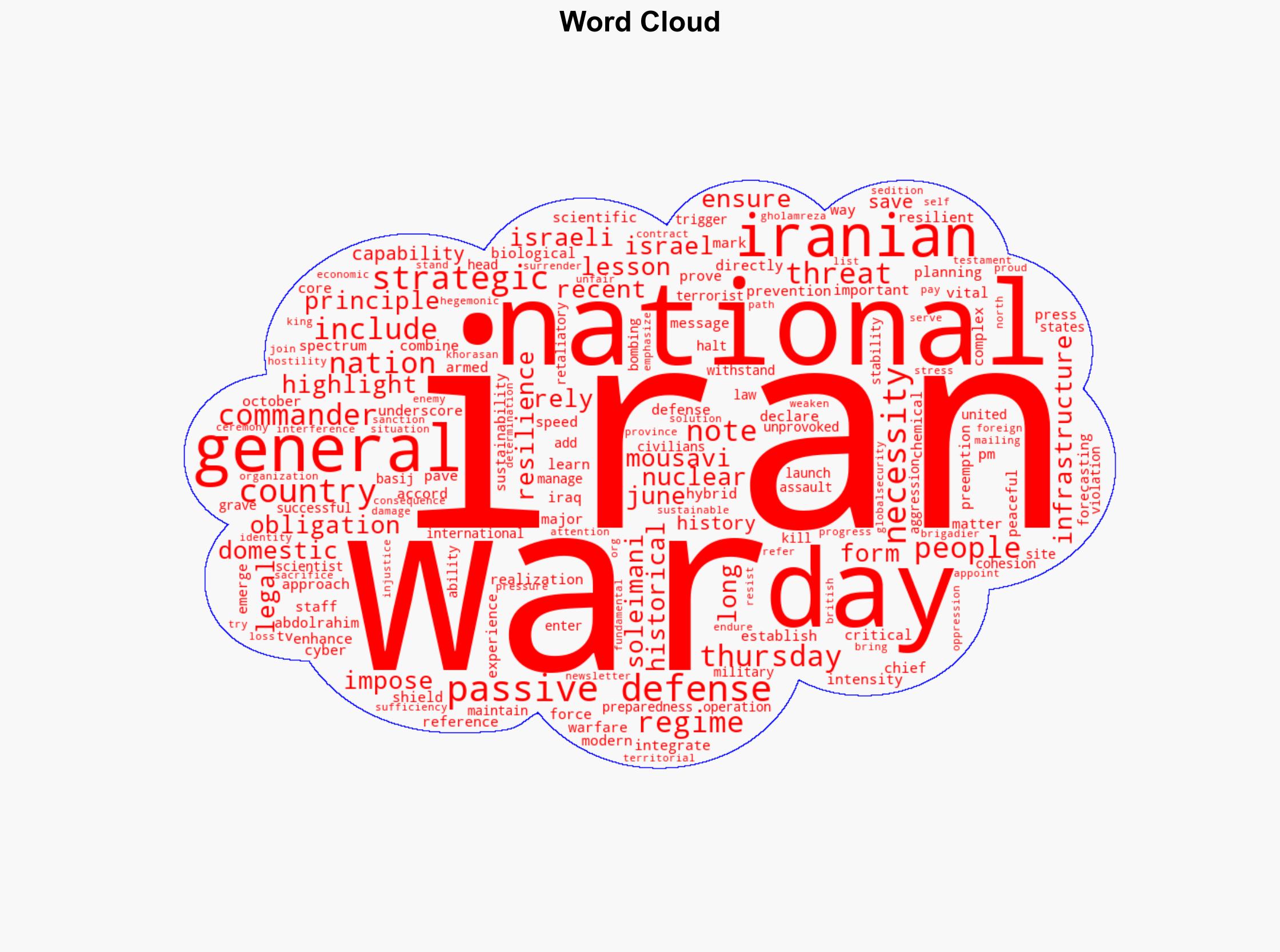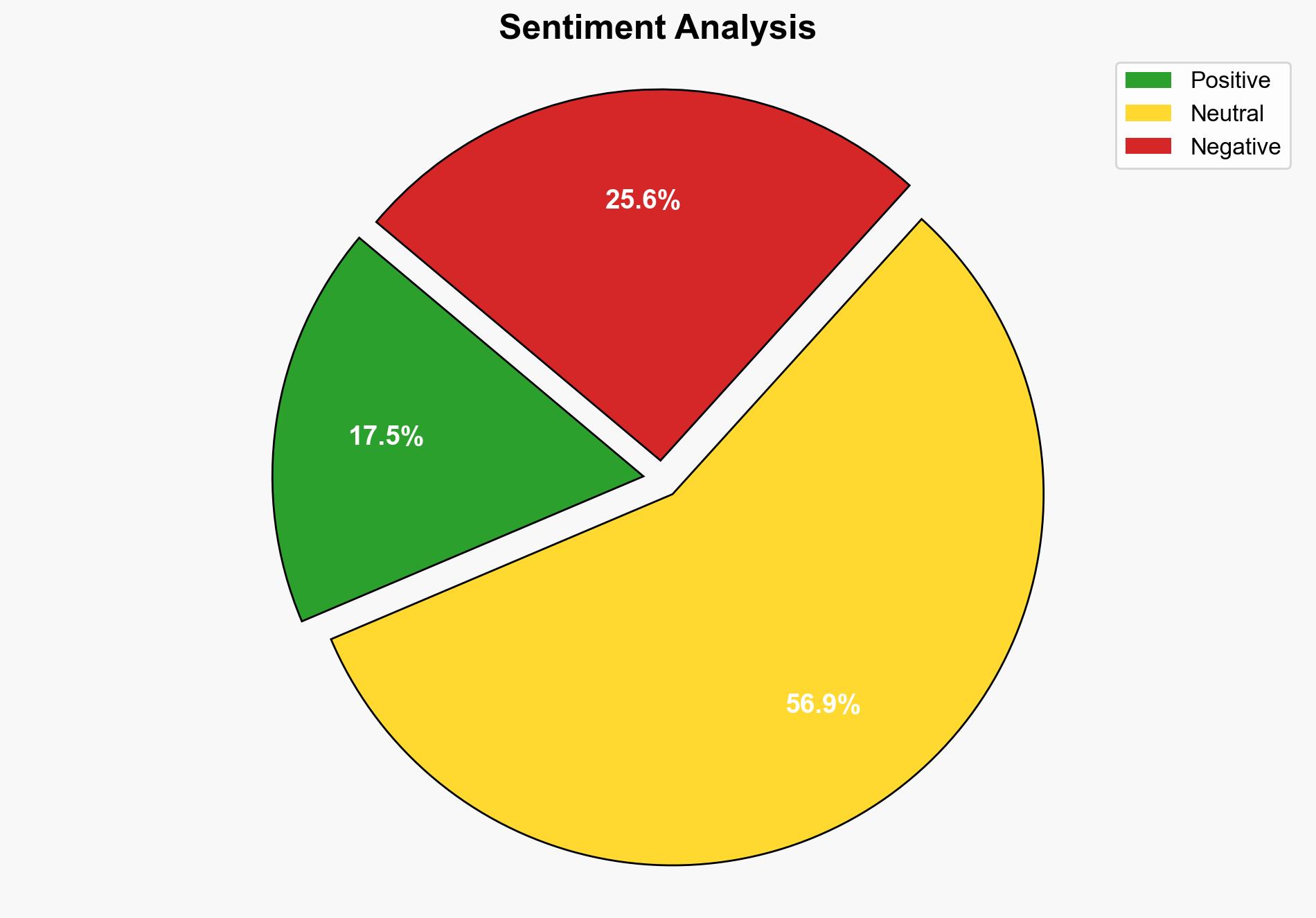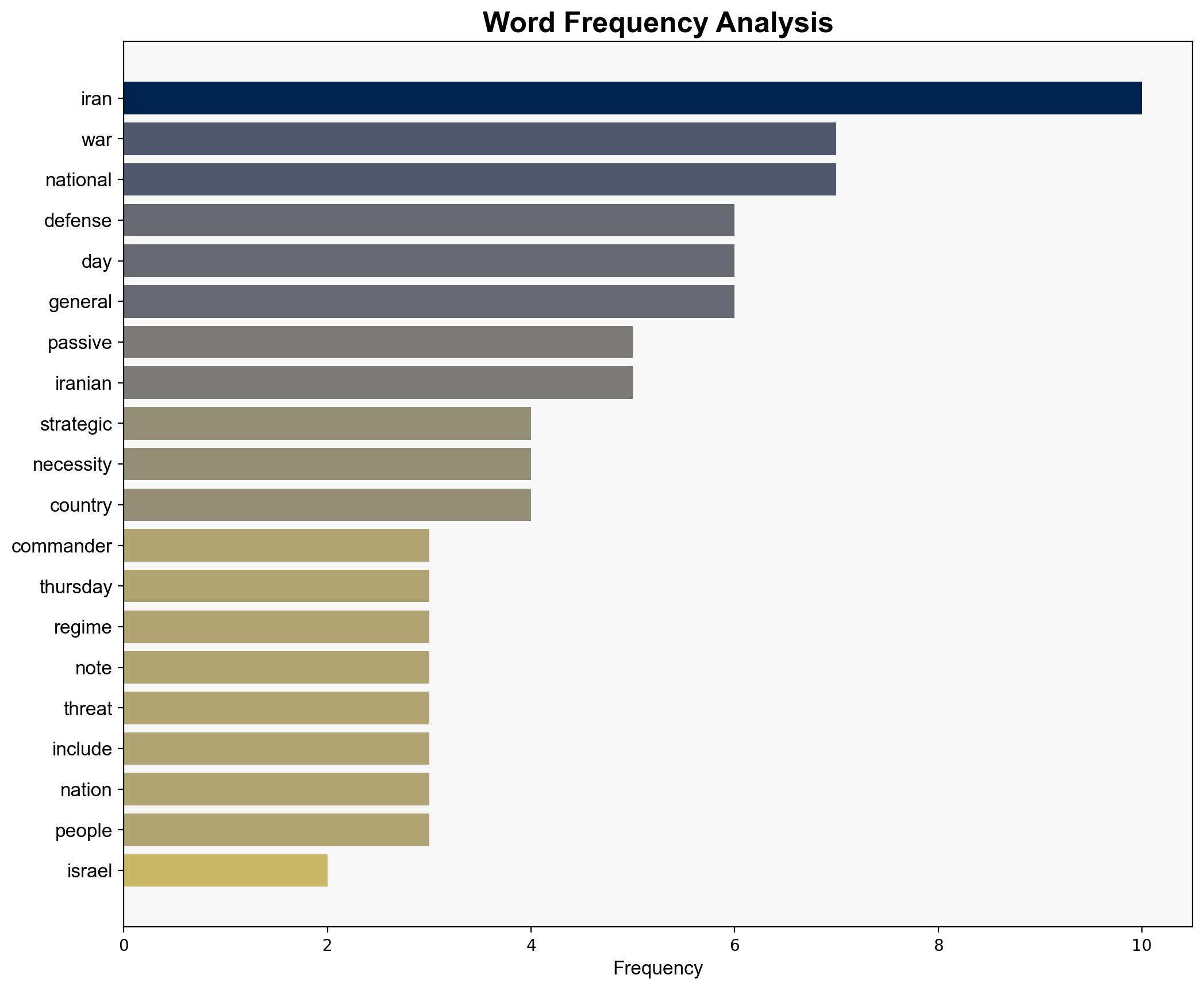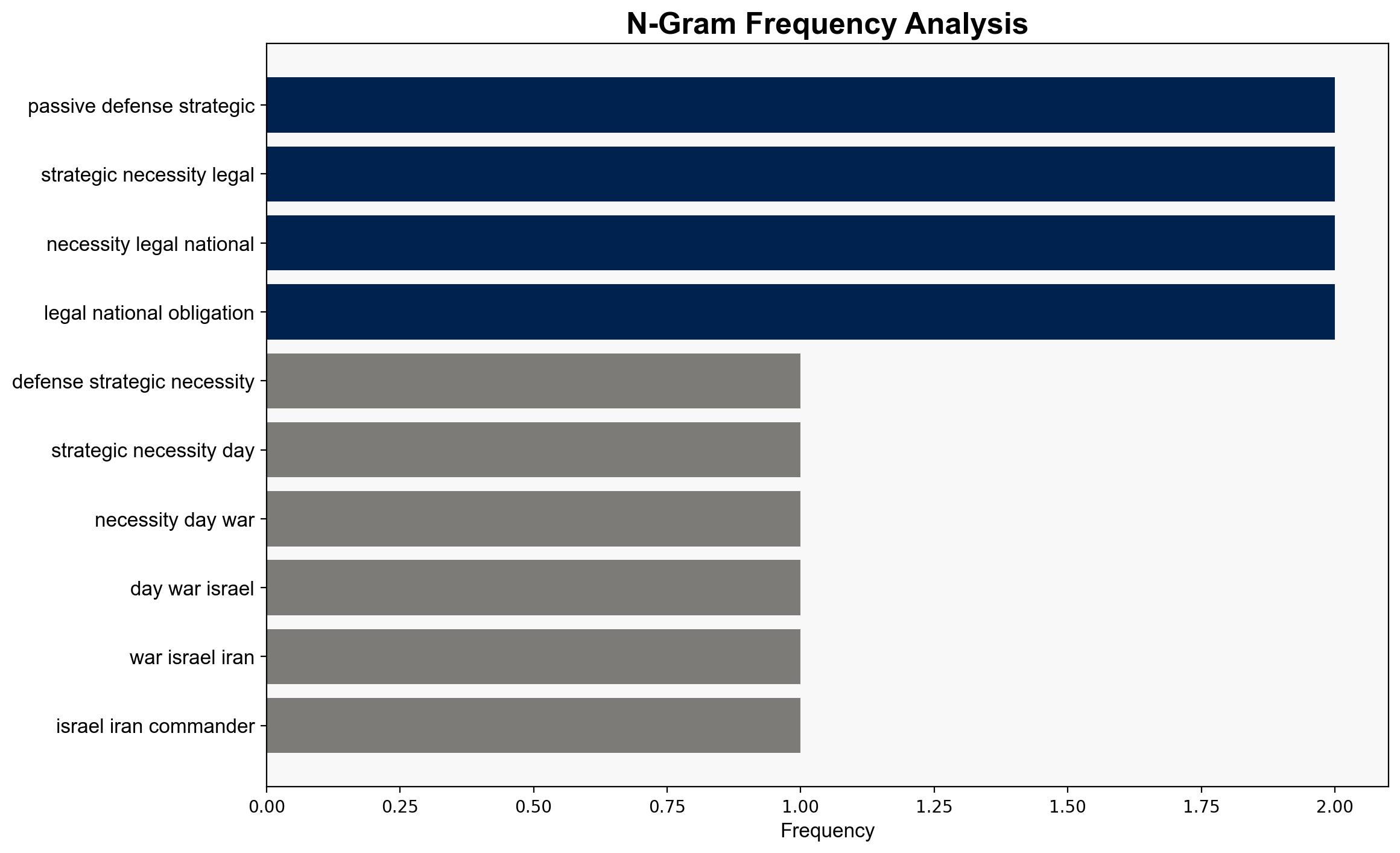Passive defense a ‘strategic necessity’ after 12-day war with Israel Iran’s top commander – Globalsecurity.org
Published on: 2025-11-01
Intelligence Report: Passive defense a ‘strategic necessity’ after 12-day war with Israel Iran’s top commander – Globalsecurity.org
1. BLUF (Bottom Line Up Front)
The most supported hypothesis is that Iran’s emphasis on passive defense is a strategic response to perceived vulnerabilities exposed during the recent conflict with Israel. This approach aims to enhance national resilience against multifaceted threats. Confidence level: Moderate. Recommended action: Monitor Iran’s defense strategy developments and regional military dynamics to anticipate potential escalations or shifts in strategic posture.
2. Competing Hypotheses
1. **Hypothesis A**: Iran’s focus on passive defense is a direct response to the vulnerabilities exposed during the 12-day conflict with Israel, aiming to bolster national resilience against future threats.
2. **Hypothesis B**: The emphasis on passive defense is primarily a strategic narrative to consolidate internal political support and justify increased military spending, rather than a response to specific vulnerabilities.
Using the Analysis of Competing Hypotheses (ACH) 2.0, Hypothesis A is better supported due to the explicit references to lessons learned from the conflict and the strategic necessity of enhancing infrastructure resilience.
3. Key Assumptions and Red Flags
– **Assumptions**:
– Iran perceives the recent conflict as indicative of future threat patterns.
– Passive defense measures can significantly enhance national resilience.
– **Red Flags**:
– Potential overstatement of the threat to justify strategic shifts.
– Lack of detailed evidence on specific vulnerabilities exposed during the conflict.
4. Implications and Strategic Risks
– **Implications**:
– Increased focus on passive defense may lead to shifts in regional military strategies.
– Potential for escalation if perceived defensive measures are interpreted as offensive preparations by adversaries.
– **Strategic Risks**:
– Economic strain from increased defense spending.
– Cyber and hybrid threats may evolve faster than passive defense measures can adapt.
5. Recommendations and Outlook
- Monitor Iran’s defense policy shifts and infrastructure developments to assess the effectiveness of passive defense measures.
- Engage in regional diplomatic efforts to reduce tensions and prevent misinterpretations of defensive postures.
- Scenario Projections:
- Best Case: Enhanced passive defense leads to regional stability through deterrence.
- Worst Case: Misinterpretation of defense measures leads to preemptive strikes by adversaries.
- Most Likely: Gradual improvement in national resilience with periodic regional tensions.
6. Key Individuals and Entities
– Abdolrahim Mousavi
– Gholamreza Soleimani
7. Thematic Tags
national security threats, cybersecurity, counter-terrorism, regional focus




